Back in January, during our California Adventure trip, we spent a day on campus at University of California, Santa Cruz. The campus is built within a forest, so you could be walking along a pathway and suddenly find yourself in the center of a cathedral of redwoods.
One of our stops at UC Santa Cruz was the Center for Agroecology and Sustainable Food Systems (CASFS). “The mission of the Center for Agroecology & Sustainable Food Systems (the Center) is to research, develop, and advance sustainable food and agricultural systems that are environmentally sound, economically viable, socially responsible, nonexploitative, and that serve as a foundation for future generations.”
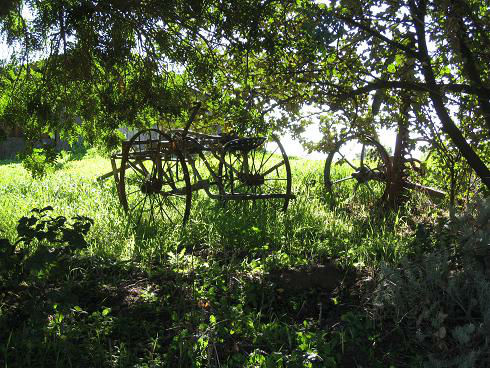
This 25-acre farm and 2-acre garden (which is named after Alan Chadwick, the man responsible for combining Biodynamic and French Intensive farming methods) was quiet when we arrived, and we happened to run into a woman who had come to turn on the irrigation. Liz Milazzo was on her way out, but she graciously stopped and talked with us for awhile. Liz pointed out that the farm provides a CSA program where much of the produce from the farm is sold to Santa Cruz residents twice a week from June to October. She also told us about the work-study programs and children’s classes that go on at the garden.
We thanked Liz and took her advice to wander around the farm’s orchard of apple trees and fields. While most of the farm was taken up with cover crops, there were a few rows of produce still in action.

There were sticks at the end of each row with plant names and planting dates. The bright colors popped in the afternoon sun.
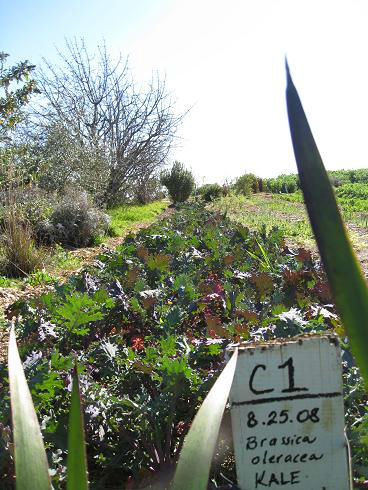
We happened upon the Children’s Garden, where I personally wanted to stay for the rest of the day. Who can resist this:
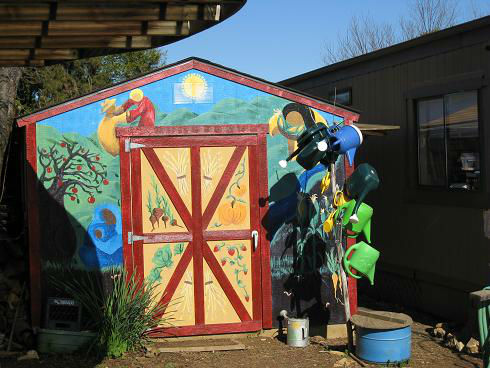
The garden had mosaic tiled tables with maps of the world, clearly an education tool to teach kids where food comes from all over the globe. The garden itself was filled with kid-friendly veggies and, of course, a scarecrow – complete with pink tights. Another teaching tool we found was this herb wheel:
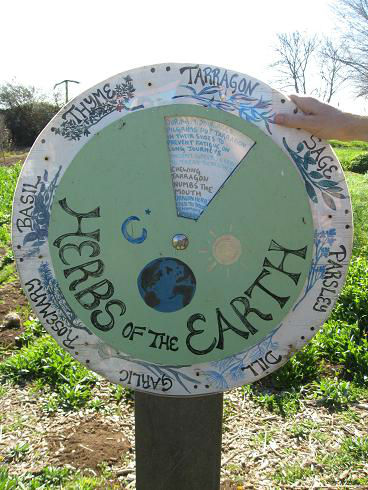
Each herb on the wheel had details about its uses both in the garden and medicinally. It seemed to be a well used wheel. But it was hard to keep focused on the garden and the herb wheel with all the clucking going on behind us.
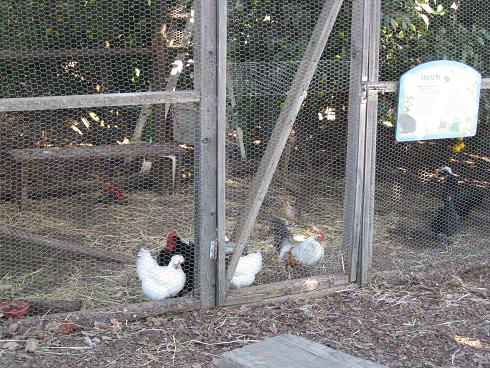
The hen house was filled with happy chickens and a lemon tree. It seems they built the cage around both of them. Next to the cage was a teaching tool to show kids how eggs develop into chicks. Nearby was another, smaller cage on wheels – also known as a Chicken Tractor. It’s used for fertilizing rows of soil without losing control over your chickens. Here’s how it works: you put the chickens in the Tractor, then wheel it over a patch of soil that needs fertilizing. They scratch the soil and poop, and voilà – your soil is cleaned up and fertilized.
Our visit was so inspiring, and I hope to go back sometime and see
the farm when it’s in full swing. To find out more about the CASFS check out their website here.
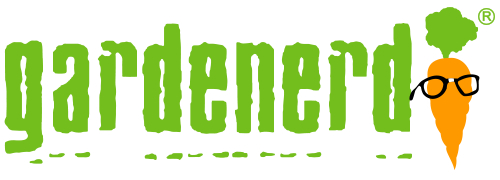


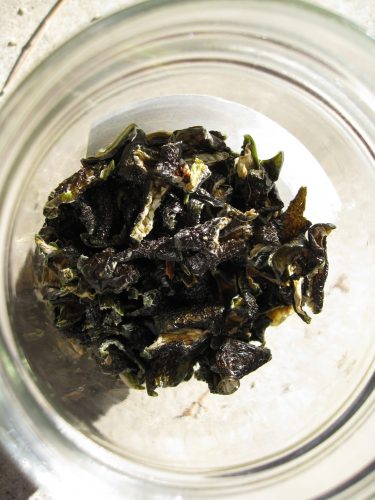
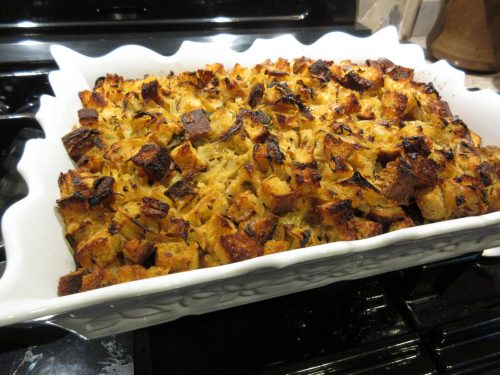
Pingback: Podcast: Multinational Exchange for Sustainable Agriculture with Lauren Augusta
Pingback: Field Trip: Alan Chadwick Garden - Gardenerd